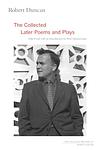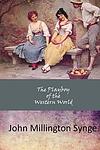John Millington Synge
John Millington Synge was an Irish playwright, poet, prose writer, and collector of folklore. He was a key figure in the Irish Literary Revival and one of the co-founders of the Abbey Theatre. He is best known for his play 'The Playboy of the Western World', which caused riots in Dublin during its opening run at the Abbey Theatre. His other notable works include 'Riders to the Sea' and 'Deirdre of the Sorrows'. Synge's writing is known for its rich depictions of Irish life and its complex characters drawn from the rural West of Ireland.
Books
This list of books are ONLY the books that have been ranked on the lists that are aggregated on this site. This is not a comprehensive list of all books by this author.
-
1. Collected Plays
The book is a compilation of dramatic works by a prominent Irish playwright, known for his significant contribution to the Irish Literary Revival. It encompasses a range of plays that vividly capture Irish rural life, often characterized by their use of the Hiberno-English dialect, lyrical prose, and a blend of realism and symbolism. The plays within this collection explore themes of love, tradition, and the struggles of the Irish peasantry, while also delving into the complex interplay between the individual and the community. The playwright's most famous work, included in this collection, is renowned for its controversial reception at the time, which sparked debates about national identity and the role of the arts in society.
The 7152nd Greatest Book of All Time -
2. The Playboy Of The Western World
"The Playboy of the Western World" is a comedic play that centers around Christy Mahon, a young man who stumbles into a rural tavern in County Mayo, Ireland, claiming to have killed his father. His tale unexpectedly elevates his status among the villagers, who find his boldness and story intriguing. As Christy enjoys his newfound popularity and the affection of the local women, complications arise when the truth about his father's fate comes to light. The play explores themes of heroism, identity, and the Irish rural life, using rich language and dramatic irony to critique societal norms and romanticized perceptions of rebellion.
The 7851st Greatest Book of All Time

